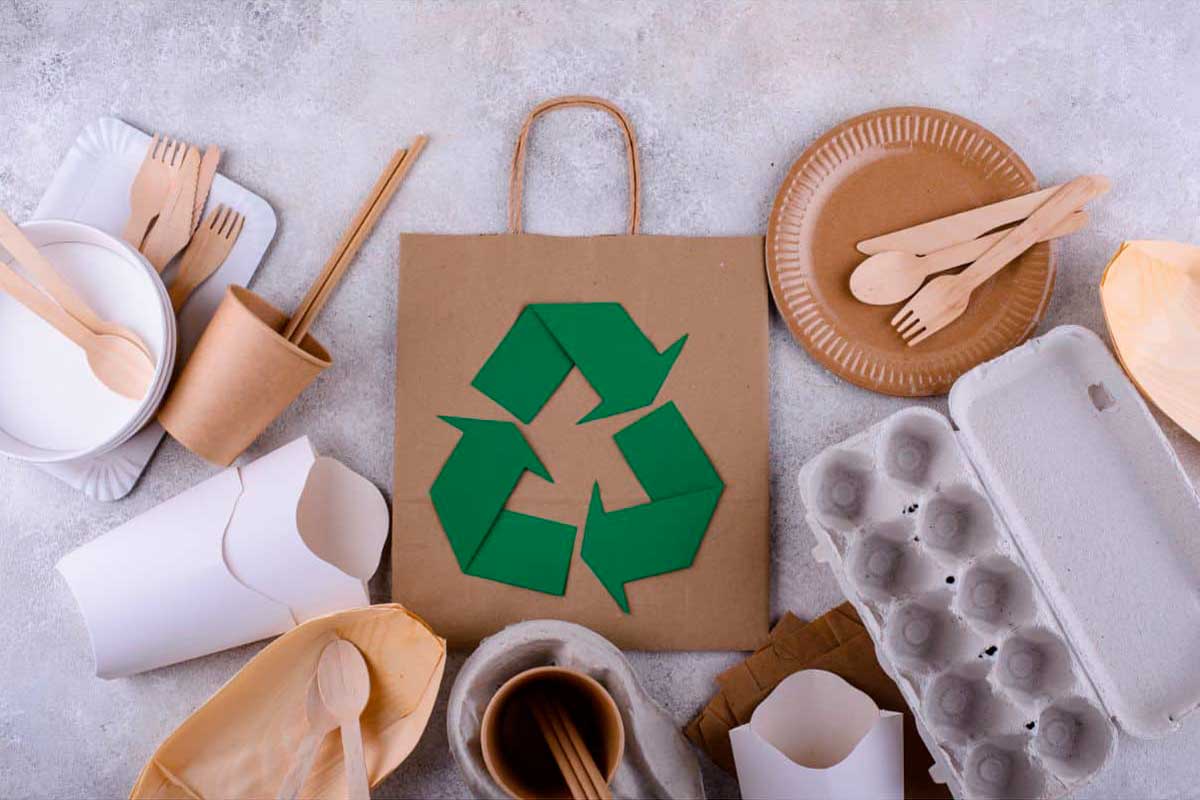Over the past decade, environmental protection has been a hotly debated issue not only in Vietnam but also around the world. Along with this has come the emergence of eco-friendly products—products created to minimize plastic waste in daily life and in Vietnam’s tourism market. So, what kinds of products are considered eco-friendly? Let’s find out!
What are eco-friendly products?
Eco-friendly products, as the name suggests, are made from materials that can decompose naturally. This allows them to “disappear” more easily when they are no longer usable and at the same time, limits or even eliminates negative impacts on the surrounding environment.

Since they are made entirely from green materials, eco-friendly products are completely harmless and have no negative impact on human health, throughout their entire life cycle, from sourcing and manufacturing to use and disposal. Unlike plastic or nylon products.
Precisely because they both protect the environment and ensure user health, eco-friendly products have been regarded as an indispensable representative in promoting the green, clean, and beautiful lifestyle of the environmentally conscious community in recent years.
Popular eco-friendly products
Handbags
For a long time, we have commonly used straw bags – also eco-friendly products – in our daily lives. Not only do they possess all the functions of a regular handbag, but straw bags are also reasonably priced, come in diverse designs, and are considered a sustainable fashion accessory.
Then, as businesses worldwide began participating in environmental protection campaigns, eco-friendly bags made from various materials became ubiquitous. Examples include rigid paper bags, non-woven fabric bags often seen at well-known brands like Biti’s and Adidas, or simple yet stylish tote bags.
All these eco-friendly bags, regardless of material, are highly durable, reusable, and of course, biodegradable – posing no harm to the environment. As a result, they are increasingly widely used, replacing plastic and nylon bags.
Dining utensils
The amount of waste generated daily from single-use plastic dining utensils such as knives, forks, straws, etc., is significant and has a severe impact on the environment. Therefore, the introduction of eco-friendly dining utensils has received positive feedback and been adopted by many food businesses.
Eco-friendly dining utensils are not limited to a specific material. Among the most notable alternatives are bamboo, wood, or sugarcane fiber. Additionally, metal is the top choice for environmentally conscious individuals due to its durability and high reusability.
Bamboo Toothbrush
Instead of a plastic toothbrush that typically lasts only about three months but takes nearly 500 years to fully decompose, opt for an eco-friendly bamboo toothbrush. Since bamboo is a completely natural material that is safe for human health and affordable, you can confidently choose this toothbrush to contribute to a greener, healthier lifestyle without any hesitation.
Natural soap
In reality, many of the shampoos and body washes we use daily have a negative impact on the environment. Their chemical ingredients often disrupt the ecological balance when they break down. Natural soap, on the other hand, helps minimize this problem thanks to its natural biodegradability in water. Additionally, this is a better choice for the skin, especially for sensitive skin.
Loofah sponge
When dried, loofah offers highly effective exfoliation and skin cleansing. Taking advantage of this natural quality, researchers have developed eco-friendly loofah sponges that are not only good for health and the environment but also ensure excellent functionality. Moreover, compared to conventional plastic sponges that take hundreds of years to decompose, loofah only takes about a month.
Eco-friendly products in green tourism
Alongside the cosmetics and food markets, tourism is one of the markets that generates a relatively large amount of waste. The emergence of sustainable tourism, also known as green tourism, has helped to solve this difficult problem to some extent.
The main goal of sustainable tourism revolves around minimizing negative impacts on the ecological environment, preserving culture, and developing the community economy. Specifically in the area of environmental protection, many restaurants and hotels are now replacing plastic amenities with eco-friendly products. We can see disposable plastic toothbrushes, bath sponges, and razors being replaced by bamboo toothbrushes, loofah sponges, wooden razors, etc. in hotel rooms. Or the appearance of sugarcane fiber boxes and eco-friendly dining utensils in restaurants.

Eco-friendly products have made a significant contribution to environmental protection and reducing waste from disposable items in restaurants and hotels. Each eco-friendly product represents an effort to promote a green, clean, and beautiful lifestyle, as well as to build and develop sustainable tourism trends to ensure not only the future of the tourism market but also the protection of the ecological environment.
Conclusion
Environmental protection is not the responsibility of any single individual; it is the responsibility of each and every one of us. We hope this article will help you gain a better understanding of eco-friendly products, green living, and green tourism, so that we can all work together to spread this message!
